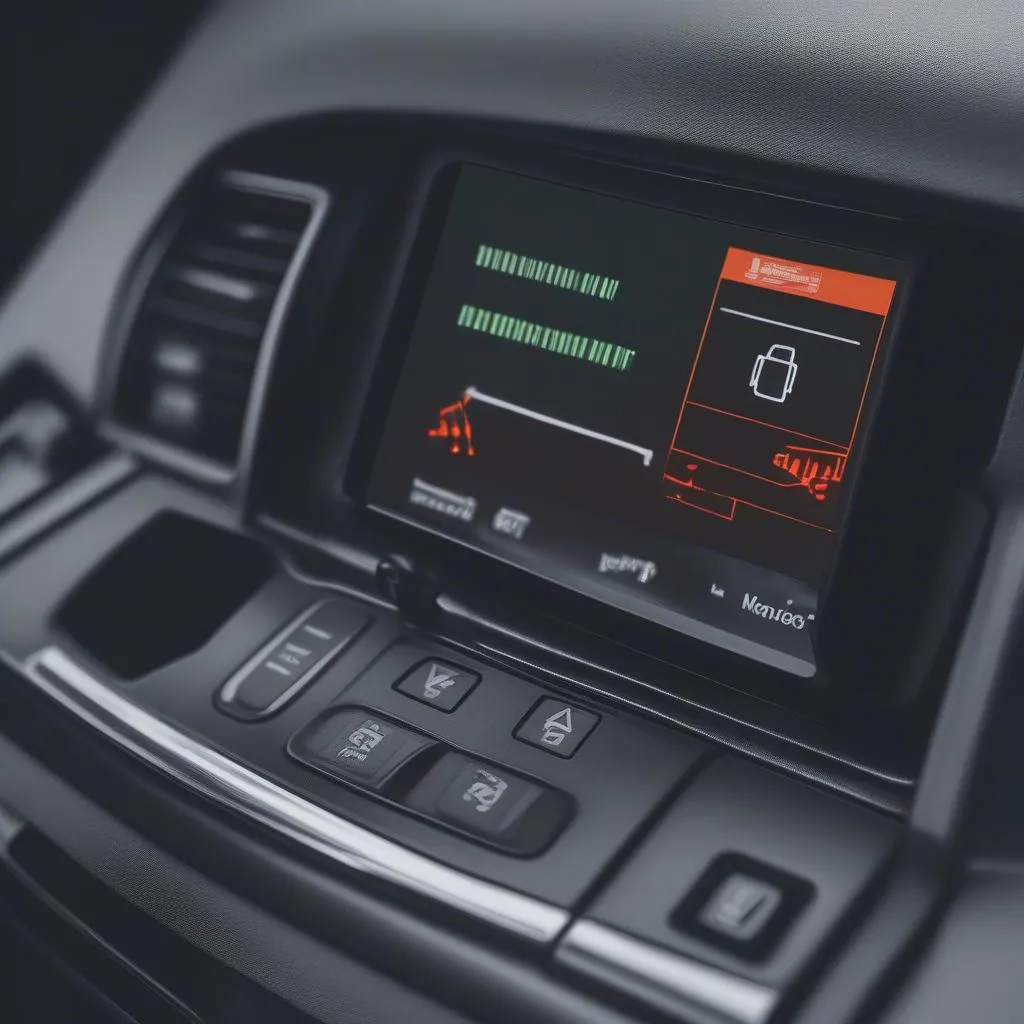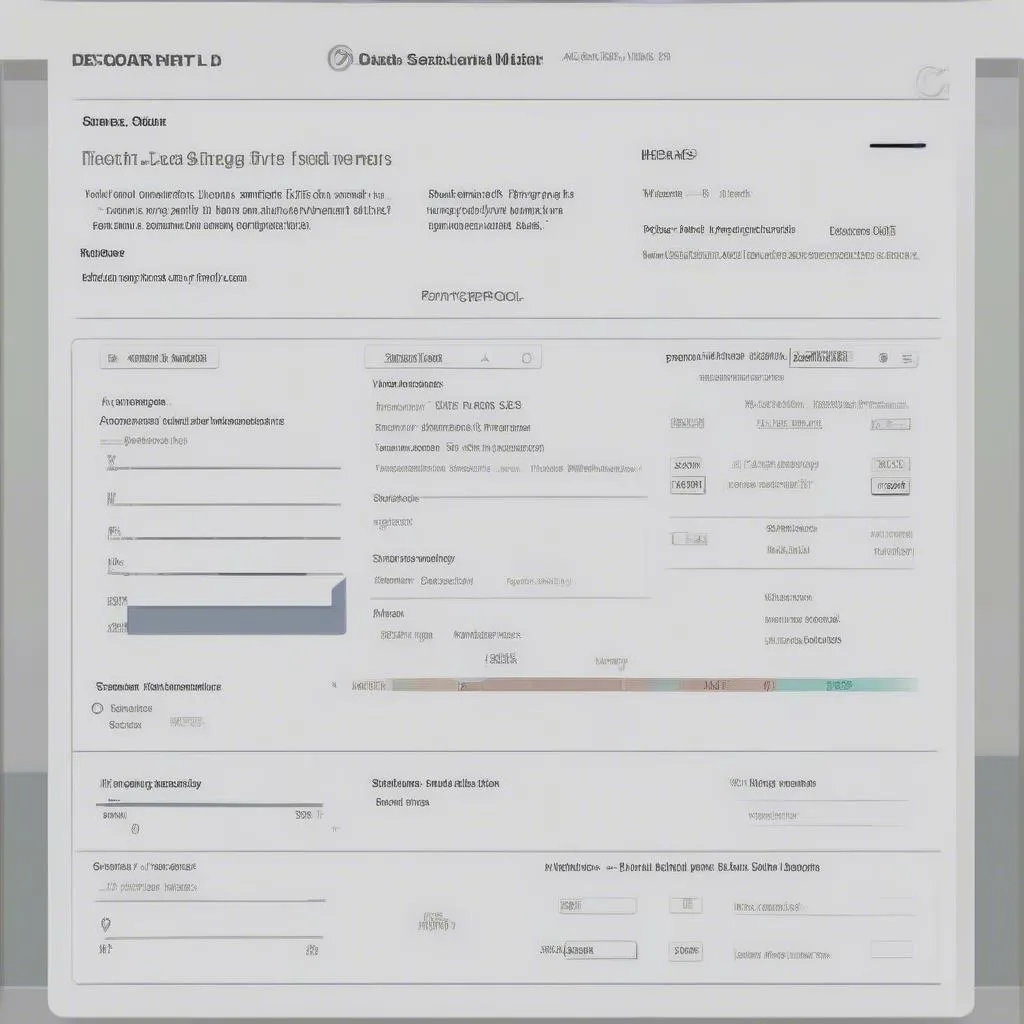Let’s face it: owning a car can be a bit of a rollercoaster ride. One minute you’re cruising down the open road, the next you’re stuck on the side of the road with the dreaded “check engine” light flashing at you. It’s moments like these that you wish you had a magic wand to diagnose the issue quickly and easily. Luckily, there’s a tool that can do just that – a scan tool.
But with so many options on the market, you might be wondering: where can I find a cheap scan tool for cars that’s still reliable? We’ll delve into this question and break down everything you need to know about choosing the right scan tool for your car.
Why Do You Need a Scan Tool?
Think of a scan tool as a translator between you and your car. It helps you understand what your car is trying to tell you through its error codes. These codes provide vital information about potential problems with your engine, transmission, brakes, and other critical systems.
Imagine you’re driving a Toyota Camry on a road trip through the beautiful landscapes of Arizona. You’re enjoying the scenic views, but suddenly, your engine starts acting up. You pull over to the side of the road, hoping it’s just a temporary glitch. But the “check engine” light remains stubbornly illuminated.
Now, you’re in a bit of a bind. Without a scan tool, you’re essentially blind to what’s wrong with your car. A scan tool can help you pinpoint the issue quickly, saving you time, money, and potential headaches.
Cheap Scan Tools: Finding Value Without Sacrificing Quality
While it’s tempting to go for the cheapest scan tool available, it’s important to remember that you get what you pay for. A low-quality tool might only read basic codes, not provide comprehensive diagnostics, or even damage your car’s system.
Understanding the Different Types of Scan Tools
Before you start your search, it’s crucial to understand the various types of scan tools available:
1. Basic OBDII Scan Tools:
- These are the most affordable options, typically priced under $50.
- They’re great for reading and clearing basic engine codes.
- However, they usually lack advanced features like live data readings or bi-directional communication.
- This type of scan tool is ideal for casual car owners who want to troubleshoot simple issues.
2. Enhanced OBDII Scan Tools:
- These tools offer more features for a slightly higher price (around $50-150).
- They provide live data readings, allowing you to monitor various parameters like engine RPM, fuel pressure, and sensor values.
- Some may also have bi-directional communication, enabling you to activate components like solenoids and actuators.
- This category is a good option for DIYers who want a deeper understanding of their car’s performance.
3. Professional Scan Tools:
- These are high-end tools designed for professional mechanics.
- They often have specialized functions for different car brands and models.
- They can read and clear advanced codes, perform complex diagnostics, and even reprogram vehicle modules.
- These tools come with a hefty price tag, typically ranging from hundreds to thousands of dollars.
Factors to Consider When Choosing a Cheap Scan Tool
Now that you understand the types of scan tools available, let’s dive into the factors to consider before making a purchase:
1. Compatibility:
- Ensure the scan tool is compatible with your car’s OBDII port. Most cars manufactured after 1996 in the United States, 2001 in Europe, and 2000 in Japan are equipped with OBDII ports.
- Some scan tools are designed for specific car brands or models. If you have a European car, consider a scan tool specifically designed for European vehicles like the Dealer Scanner for European Cars.
- Check the product description or website to confirm the compatibility list.
2. Features:
- Determine the essential features you need.
- Consider features like live data readings, bi-directional communication, code clearing, and specific manufacturer capabilities.
- If you need advanced features, you may need to spend a bit more.
3. Ease of Use:
- Choose a scan tool with a user-friendly interface.
- Look for tools with clear instructions and intuitive navigation.
- Some tools come with apps for smartphones or tablets, making it even easier to use.
4. Customer Reviews:
- Read reviews from other users to get a sense of the scan tool’s performance and reliability.
- Check online platforms like Amazon and eBay for reviews and ratings.
5. Warranty:
- Look for a scan tool with a warranty, especially if you’re buying a used one.
- This will provide you with peace of mind and protection in case of any defects.
Common Questions About Cheap Scan Tools
Let’s answer some frequently asked questions about cheap scan tools:
1. Can I use a cheap scan tool to diagnose my car’s problem?
- Yes, a cheap scan tool can be helpful for basic diagnostics. It can read and clear generic codes, potentially pointing you in the right direction. However, it may not provide all the information you need for a precise diagnosis, especially for more complex issues.
2. Are cheap scan tools accurate?
- Some cheap scan tools can be accurate for basic diagnostics, but they might not always provide complete information or advanced readings.
- It’s crucial to cross-check your findings with other resources and consult a professional if you have doubts.
3. Will a cheap scan tool damage my car?
- Using a low-quality scan tool can potentially damage your car’s system, especially if it’s not compatible or used improperly.
- Make sure to choose a scan tool from a reputable brand and follow the instructions carefully.
Popular Cheap Scan Tools
Here are a few popular cheap scan tools that have received positive reviews:
- BlueDriver: A popular choice for its user-friendly interface and extensive features.
- Autel MaxiScan MS300: A versatile option offering a good balance between price and features.
- ANCEL AD310: A budget-friendly tool that’s well-suited for basic diagnostics.
Tips for Using a Cheap Scan Tool
- Consult the user manual carefully. This will help you understand the tool’s functions and limitations.
- Clear the codes only after you’ve addressed the underlying issue. Simply clearing codes without fixing the problem might cause the “check engine” light to come back on.
- Consider consulting a professional mechanic for complex diagnoses. They can use advanced tools and their expertise to troubleshoot complex issues.
Conclusion
Choosing a cheap scan tool for cars can be a smart way to save money and gain some control over your car’s maintenance. Remember to consider compatibility, features, ease of use, customer reviews, and warranty. Don’t hesitate to reach out to us if you have any questions or need assistance with your scan tool. We’re here to help!
Do you have any other questions about cheap scan tools or want to learn more about specific brands or models? Leave a comment below, and we’ll be happy to provide more information!
 A Mechanic Uses a Scan Tool
A Mechanic Uses a Scan Tool
 OBD2 Port
OBD2 Port
 Scan Tool Display
Scan Tool Display


